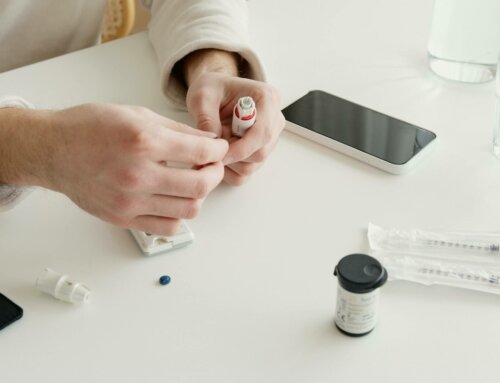Check out our updated article The Connection Between Gum Disease and Diabetes
People with diabetes may have an increased risk of oral health problems due to poorly controlled blood sugars. Proper dental care is a top priority for optimum oral hygiene. Discover more about tooth care and toothpastes when you have diabetes.
- Diabetes is a disease that can impact your entire body, including your teeth and gums. Uncontrolled blood sugars can impair your white blood cells, the body’s defense against bacterial infections that may develop in your mouth. Keep your blood sugar in check for better oral health. Consider a few of the common dental issues people with diabetes may face as well as how to detect and prevent them.
- When diabetes is uncontrolled, it can reduce the saliva flow in your mouth. The result is a dry mouth that may lead to oral infections, soreness, ulcers and tooth decay. Check your blood sugar regularly and report any extreme highs or lows to your doctor. Use insulin and medications as prescribed. Relieve the symptoms of dry mouth by using a product such as Biotene Toothpaste.
- People with diabetes may be more prone to tooth decay and cavities. The bacteria that occur naturally in your mouth can interact with the sugars and starches in beverages and foods. Plaque forms on your teeth with acids that attack your tooth enamel and lead to cavities. The higher your blood sugar level, the more sugar and starches that exist in your mouth to cause cavities. Maintain a healthy blood sugar level, floss daily and brush your teeth at least 30 minutes after a meal to help fight plaque. Keep antibacterial mouth rinse on hand for times when you are unable to brush your teeth. Chew sugar free gum with xylitol to reduce plaque formation.
- Diabetes complications may cause your blood vessels to thicken. This slows the movement of nutrients to and waste products away from body tissues including in your mouth. As a result, your body’s ability to combat infections is minimized. This can lead to gum inflammation and infections such as gingivitis and periodontitis. Oral tissues often take longer to heal for people with diabetes. It could take a long time to heal after dental procedures such as oral surgery. Always try to keep your blood sugar as close to normal as possible.
- Thrush can occur in people with diabetes who take antibiotics often to fight infections. This fungal infection of the mouth thrives on the high levels of sugar in the saliva of those with uncontrolled diabetes. Thrush can lead to a burning sensation in the mouth and on the tongue. Discuss the status of your diabetes with your dentist during each visit. Tell your dentist about any hypoglycemic incidences and what medications you take.
- People with diabetes who smoke should quit immediately. Smokers are up to 20 times more likely than non-smokers to develop conditions such as gum disease and thrush. Smoking impairs the blood flow to the gums which can slow down healing in these tissues. Visit your diabetes doctor prior to scheduling treatment for periodontal disease. Find out if you need to take antibiotics before surgery. Find out if you need to change your insulin dosage and/or meal and medication schedule.
- Your diabetes doctor should have the contact info for your dentist and your dentist should be given your diabetes doctor’s name and number. Give your dentist a list of your medications. Be aware it could take longer to heal after oral surgery and follow your dentist’s post-treatment instructions. If you wear braces or other oral appliances, contact your orthodontist or dentist immediately if a wire is cutting your mouth or tongue.
- Take proper care of your teeth and gums each day. Maintain regular dental appointments at least twice a year to get routine exams and have your teeth and gums professionally cleaned. Use dental floss to ward off plaque buildup. Brush your teeth after meals and snacks. Use a soft-bristled toothbrush at least 30 minutes after you eat in case your tooth enamel has been softened by the acid in the food. Choose fluoride toothpaste that has been approved by the American Dental Association (ADA). Use an antibacterial mouth rinse to minimize the formation of plaque on your teeth and gums. If you wear dentures, remember to take them out each day while you sleep and clean them.
People with diabetes might be more prone to tooth decay and gum disease, but there are simple ways to prevent serious dental problems. Maintain a normal blood sugar level, brush your teeth after meals and floss daily for optimum oral health. Learn to schedule regular dental visits and professional cleanings. You will always have something to smile about!












Leave A Comment